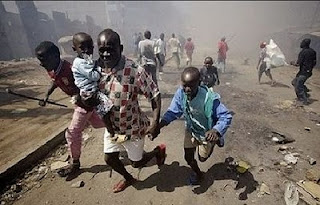
All Saints 2010 Death and what happens to our human “selves,” our consciousness, our soul, is one of the great mysteries that all peoples have tried to understand. One moment a person is breathing, their heart beating and body warm, sharing life with us. And then something passes, they are still, grow cold, the light leaves their eyes, and they do not respond to any of our entreaties. All animals feel pain, and social animals feel social pain. We mourn the loss of those we know, and wonder what it means for us. In Mexico, Día de los Muertos (the Day of the Dead), November 2, links ancient indigenous practices and imagery to the Catholic feast of All Souls. In Roman Catholic doctrine, souls which are not condemned to hell but who still need some purgation as a result of earthly sins, spend time in Purgatory or “limbo.” So on the day of the dead, those departed who are still “in play” are invited back into the world. Altars are built to honor the deceased using sugar skulls, marigolds, a...










+after+Gerhard+Richter.gif)

